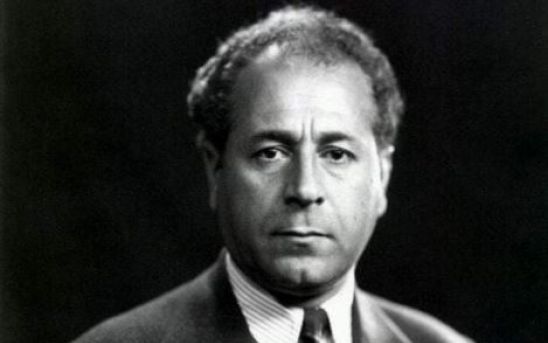Antoun Saadeh believes that empowering the nation with strength is essential to ensure its independence and dignity. According to him, a nation cannot achieve its renaissance or defend its sovereignty without sufficient power to protect its national interests. Saadeh's renaissance project does not solely focus on political or social reform but also on equipping the nation with the material and psychological strength necessary for its survival and continuity in facing internal and external challenges.[1]
In this context, Saadeh asserts that a social nationalist state is inherently a state of resistance, keen on taking all necessary measures to preserve internal social peace and protect the nation’s sovereignty, rights, and national resources. This resistance is not limited to countering external aggression; it also involves building a strong and cohesive society that can confront economic and social challenges threatening its stability.
In addition to social and economic reforms, Saadeh believes that defending the nation and protecting its sovereignty requires building a strong army equipped with modern means to ensure its effectiveness in determining the nation’s and homeland’s destiny.[2] Military strength is not merely a defence tool; it is part of the nation’s identity and its ability to assert its will on the international stage and protect its rights. Saadeh stresses the importance of every nation embracing the principle of an armed nation, which he sees as the only guarantee of its survival. He states: “The principle of the armed nation is the sole principle that every nation unwilling to perish must uphold.”[3]
This principle reflects Saadeh’s comprehensive view of strength, encompassing not only material but also psychological aspects. He sees the psychological strength of the nation, represented by unity of will and national awareness, as a core element of achieving a renaissance. A nation with a strong collective consciousness and a shared will is not easily defeated, even against materially stronger forces. Therefore, Saadeh emphasizes the psychological preparation of the people to face challenges, whether internal, such as poverty and corruption, or external, such as military aggression or economic control.
Empowering the nation with strength does not imply focusing solely on the military aspect; it also involves economically and scientifically empowering society to make it self-reliant and independent. Saadeh considers economic, agricultural, and industrial progress an inseparable part of a nation’s strength, as economic power enables the nation to fund its military strength and ensure its continuity in the face of challenges.
Moreover, Saadeh emphasizes the collective mobilization of the nation, where every individual must be ready to contribute to national defence, either through military service or productive work that builds national strength. This vision materializes in a cohesive and united society that relies on the strength of the entire people rather than a small elite.
Based on this vision, Saadeh's renaissance project seeks to create a strong state capable of protecting itself from all forms of threats, whether military, economic, or cultural. The social nationalist state is one with full sovereignty, refusing to submit to any foreign influence or domination and striving to enhance its independence through self-strength, whether military, economic, or psychological.
In the end, strength in Saadeh’s thought is not merely a means of defence but a fundamental element of nation-building and renaissance. A nation that does not seek to empower itself through strength will remain vulnerable to fragmentation and collapse, making strength an integral part of the Renaissance project to ensure the nation's survival and advancement.
[1] Antun Sa’adeh. The Ten Lectures 1948, 9. 155.
[2] Ibid., the Tenth Lecture.
[3] Antun Sa’adeh. Al-‘Athar al-Kamilah (Complete Works) Vol. 3, 1937, p. 140.

